Managing Covid-19 at home: What you must know
So you’ve got Covid-19. Here’s our complete guide to handling the illness – everything from the medicines you need to the warning signs to watch out for.
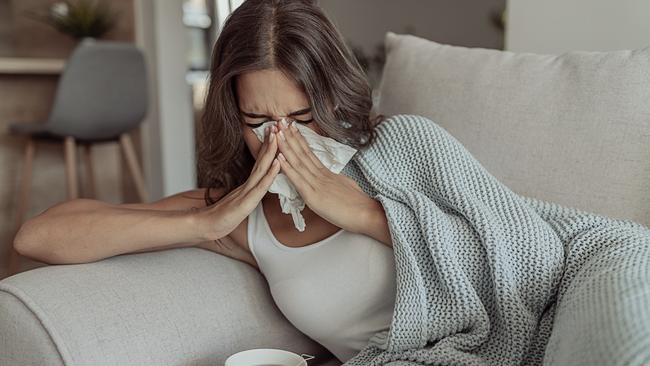
Coronavirus
Don't miss out on the headlines from Coronavirus. Followed categories will be added to My News.
Contracting Covid-19 has gone from being a remote possibility to a realistic one, but doctors stress a few pharmacy medicines and a commonsense approach are all most Australians will need to pull through.
According to the federal government, about four out of five Australians infected with Covid-19 will experience only mild or moderate symptoms – although even these levels of illness require good home care.
Experts say the first step is to ensure you have sufficient supplies of pain relief, cough medicine, throat lozenges and those old pandemic staples – masks and sanitiser – on hand.
As a positive Covid-19 test mandates an immediate seven-day isolation period, it’s too late to buy those things afterwards.
“A Covid positive preparation is absolutely vital,” said Dr Karen Price, President of the Royal Australian College of General Practitioners.
“That means having some Rapid Antigen Test kits on hand, if you can, as well as some analgesics, your favourite paracetamol brand, some Nurofen – unless you are pregnant – a thermometer to monitor your temperature, and throat lozenges to give you symptomatic relief, because a very dry scratchy throat is a common symptom of Covid.”

Maintaining fluids was critically important for the Covid-positive patient, she said.
“You can use water, but you can also use preparations like Hydralyte, a balanced electrolyte solution which you can get from the chemist,” she said.
But she explicitly advised against sports drinks like Gatorade, as they are “too concentrated”.
Brenton Hart, Chief Pharmacist for Terry White Chemmart, said hydration support products “can really make a difference in helping a person feel better quicker”.
“From a pharmacists’ perspective, we’re also seeing a lot of gastrointestinal symptoms come about from Omicron: nausea, loss of appetite, in some cases diarrhoea and vomiting, so having those rehydration salts on hand makes a lot of sense. There are also ice block versions for kids,” he said.
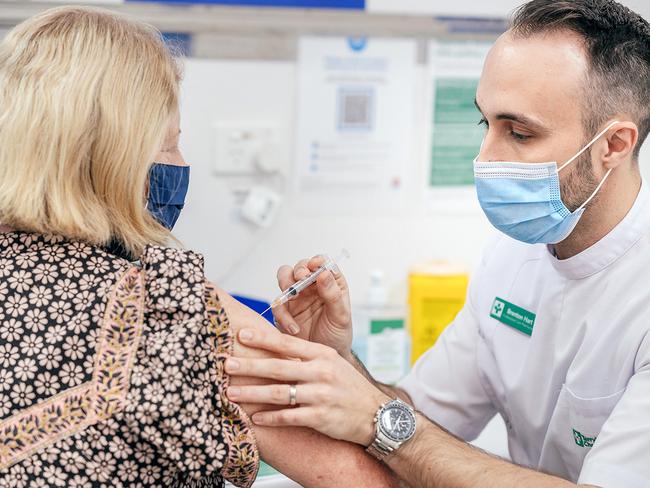
During cold and flu season, the first sign of a scratchy throat can prompt many people to reach for echinacea and other products billed as having ‘first defence’ properties, but Dr Price said there was no strong evidence supporting their use in preventing Covid-19 or lessening its effects.
“There’s pretty mixed evidence with pretty low quality studies on the use of those. If people feel more comfortable taking them they’re going to do that, but it’s not something a medical doctor is going to recommend,” she said.
Another response at the first sign of illness is to follow the adage “feed a cold and starve a fever,” but Dr Price said it didn’t necessarily apply to Covid-19.
She advised following a “food as tolerated” approach, but to stick with meals that were easily digested rather than dishes that were heavy or overly spicy.
One item proposed as a tool for the at-home management of Covid-19 is a pulse oximeter, those little plastic clamps that fit over a fingertip, often seen in hospitals. The device painlessly measures the amount of oxygen in the blood, with readings in the high 90s considered normal, and readings in the low 90s a cause for serious concern, even hospitalisation.
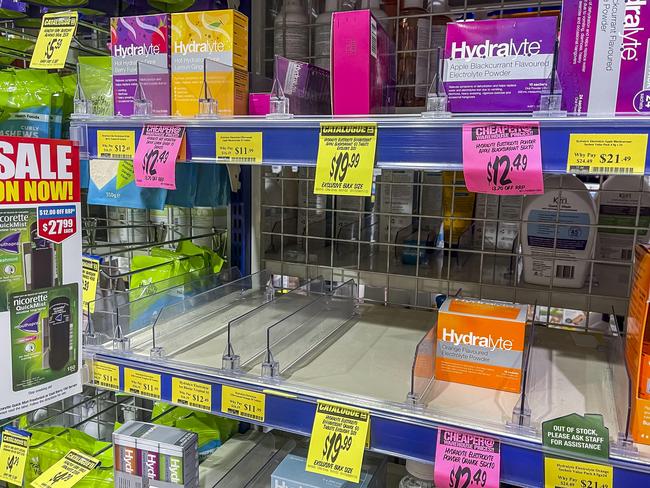
COMMON FIRST SYMPTOMS
● Scratchy or sore throat
● Lower back pain
● Runny or congested nose
● Headache
● Fatigue
● Sneezing
● Night sweats
● Body aches
WHAT MILD SYMPTOMS ARE LIKE
Mild upper respiratory tract symptoms, such as a congested or runny nose, sneezing, or a scratchy or sore throat
Cough
New aches and pains, or lethargy or weakness without shortness of breath
Mild headache
Mild fever that responds to treatment
Loss of smell or taste
Loss of appetite, nausea, occasional vomiting or diarrhoea
WHAT MODERATE SYMPTOMS ARE LIKE
Breathlessness on mild exertion (for example, walking up a flight of stairs)
Fever (temperature greater than 38°C) or feeling hot, and not responding to treatment
Coughing up mucous regularly
Signs of dehydration (dizziness when standing up, passing less urine than usual)
Significant fatigue or lethargy
Headache that doesn’t respond to medication
WHAT SEVERE SYMPTOMS ARE LIKE
Breathlessness at rest and or you’re unable to speak in sentences
Unconscious, faint or drowsy
Skin turning blue or pale
Cold and clammy, or pale and mottled, skin
Pain or pressure in the chest lasting more than 10 minutes
Confusion
Passing a lot less urine than usual
Coughing up blood
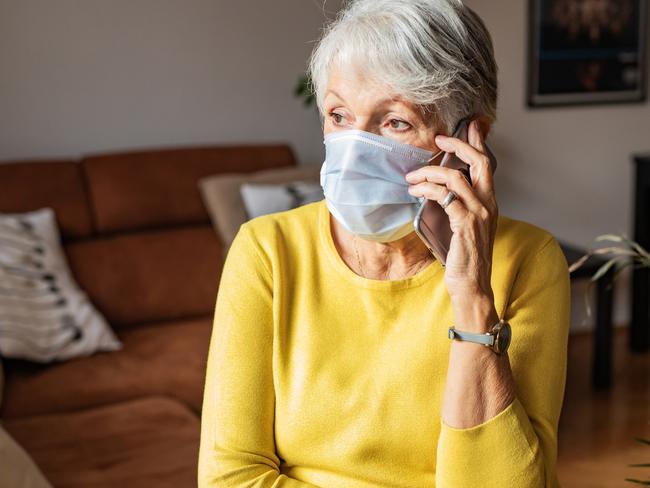
WHEN SHOULD YOU CALL YOUR GP?
HealthDirect advises asking yourself the following questions three times a day — morning, afternoon and night. Can I get my own food? Can I drink? Can I go to the toilet normally? Can I take my regular medication? If you answer no to any of these questions, call your GP.
HOW LONG DOES COVID LAST
Incubation period ranges from 1-14 days. Most people develop symptoms 5-6 days after transmission. Duration of illness can be extremely variable – from several days (remember mandatory isolation is for seven days) up to several months.
WHAT TO HAVE ON HAND
ESSENTIAL ITEMS
Throat lozenges
A dry, scratchy throat is common. Look for the varieties that also treat coughs, as this can be another symptom.
Cough medicine
Speak to your GP or pharmacist about whether a suppressant or an expectorant is better for you, An expectorant will help you bring up excess mucous.
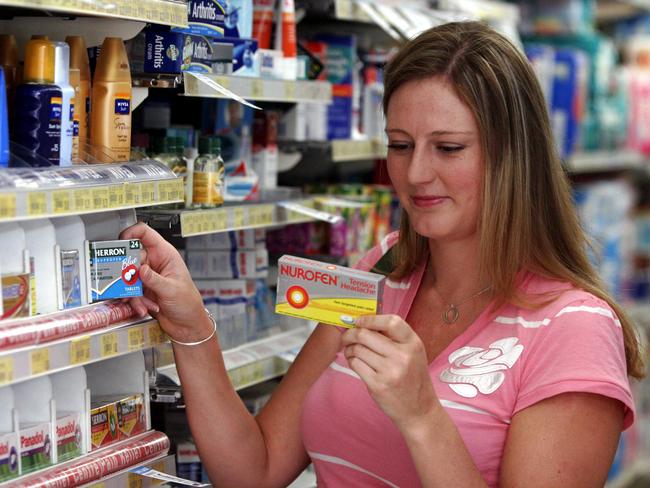
Pain relief
Get at least a week’s supply of paracetamol and ibuprofen, as multiple members of the household may require pain relief. Remember pregnant women should not take Nurofen.
Water or electrolyte solutions
Dr Karen Price advised going for Hydralyte, available at chemists, and staying clear of sports drinks.
Food
Ensure your freezer and pantry is well-stocked with nutritious meals beforehand – or arrange for a friend to drop off supplies in a socially-distanced and contactless way.
Boxes of tissues and thermometer
Don’t forget the basics.
Masks, gloves, sanitiser
If a member of your household gets Covid-19 and needs to isolate within the home, masks, gloves and sanitiser can cut down the risk of transmission, particularly if bathroom facilities must be shared.
Go-to websites and phone numbers
Dr Karen Price advises writing down essential website and phone numbers before any member of the family gets sick. Include the number of your GP and the social media page of your local pharmacy.
Ambulance 000
Covid-19 hotline.......1800 020 080
Health Direct ....... www.healthdirect.gov.au
OTHER ITEMS
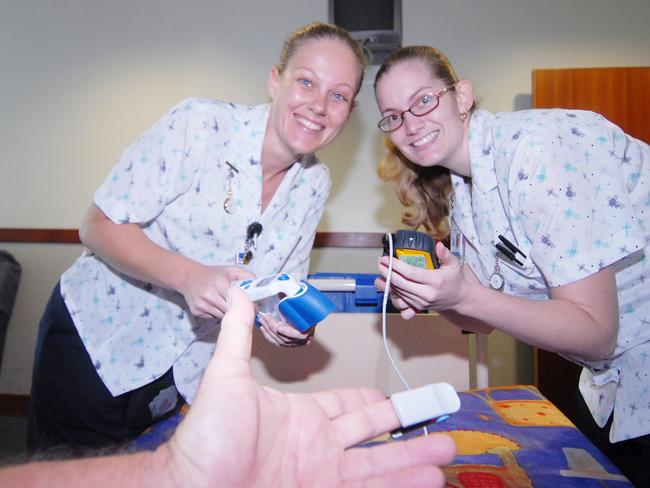
Throat relief
Besides lozenges, think about foods that may soothe a sore throat. Some opt for frozen berries. Icy poles also have their role to play.
Testing kits
Rapid Antigen Testing kits continue to be in short, sporadic supply. Many chemists advise of the stock they do get on their social media pages, so follow the accounts of nearby pharmacies.
Diary
Dr Karen Price said a diary could be useful, particularly if you have other health conditions. Use it to record your developing symptoms and temperature.
Pulse oximeter
These devices are available at pharmacies and many online retailers such as Kogan or Harvey Norman
Sources: RACGP / www.healthdirect.gov.au





